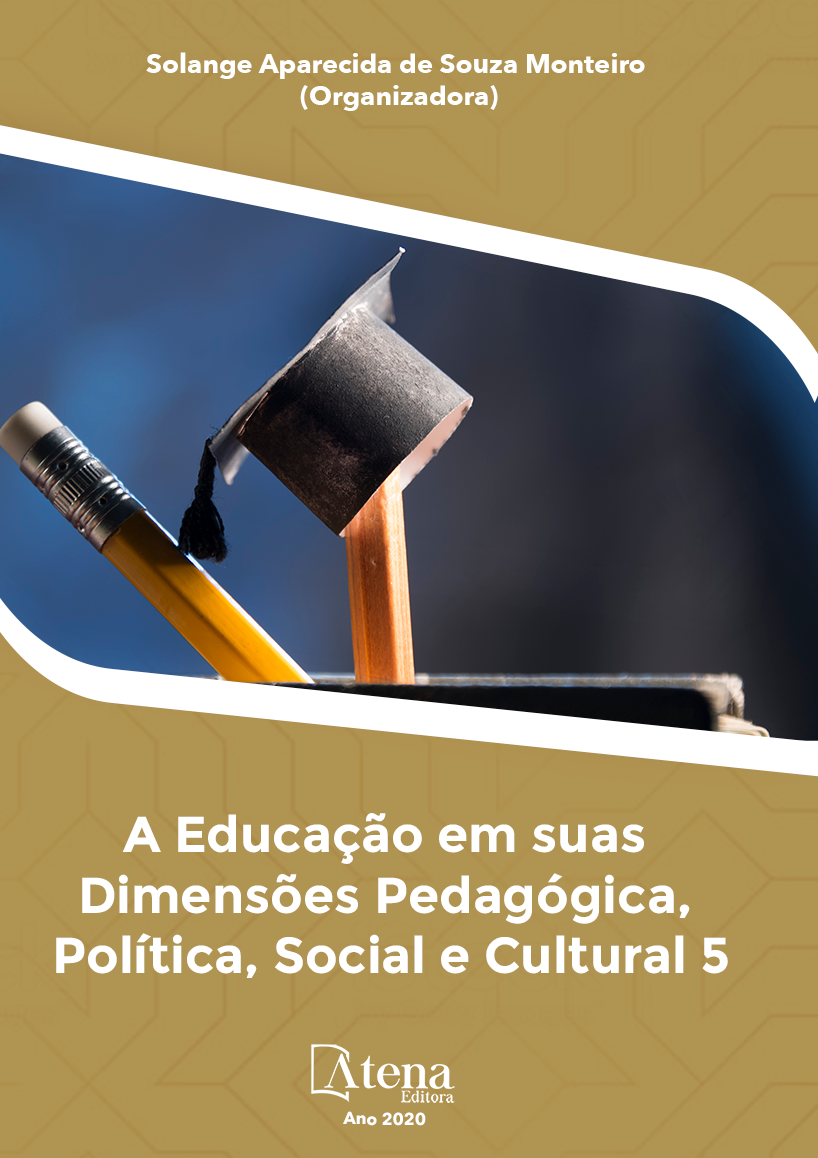
A EDUCAÇÃO PARA AS RELAÇÕES ÉTNICO-RACIAIS: ENSINO NO CONTEXTO COM A COMUNIDADE QUILOMBOLA KALUNGA
O trabalho apresentado é fruto de
sequência didática realizada na turma do 5º
Ano do Ensino Fundamental I, na Escola Happy
School, do Município de Itumbiara no estado
de Goiás. O relato de experiência buscou
responder a seguinte questão: “É possível que
alunos do Ensino Fundamental I a partir de
aulas contextualizadas com as relações étnicoraciais despertem o interesse em conhecer a
história de comunidades quilombolas?”. Foram
realizadas quatro etapas sendo que, a primeira
consistiu na apresentação do livro “O Kalunga
tem História Desafios para o Ensino de Química
na Educação Quilombola” com o levantamento
semelhanças e diferenças existentes entre
a realidade dos alunos e as comunidades
quilombolas, evidenciando o processo histórico,
a luta e a cultura. Na sua etapa realizou-se a
leitura e discussão no livro didático da escola
apresenta no conteúdo de História de Goiás,
o tema Remanescente de Quilombo Kalunga,
permitindo a contextualização entre os dois
livros didáticos. A terceira etapa consistiu em
diálogo e produção de textos. Na quarta etapa
a elaboração de slides e apresentação. Os
resultados evidenciam a necessidade de um
currículo escolar integrado que estimule o aluno
a querer conhecer e valorizar a história e cultura
de comunidades quilombolas.
A EDUCAÇÃO PARA AS RELAÇÕES ÉTNICO-RACIAIS: ENSINO NO CONTEXTO COM A COMUNIDADE QUILOMBOLA KALUNGA
-
DOI: 10.22533/at.ed.3132013025
-
Palavras-chave: Educação. Quilombolas. Kalunga.
-
Keywords: Education. Quilombolas. Kalunga
-
Abstract:
The work presented is the result
of a didactic sequence performed in the class
of the 5th grade of Elementary School I, at the
Happy School, in the municipality of Itumbiara,
Goiás State. The experience report sought to answer the following question: “Is it
possible that students Elementary School I from a contextualized classes with ethnicracial relations arouse interest in knowing the history of quilombola communities?
”. Four stages were carried out. The first one consisted of the presentation of the
book “Kalunga Has History Challenges for the Teaching of Chemistry in Quilombola
Education” with the survey of similarities and differences between the reality of students
and quilombola communities, highlighting the historical process. , the struggle and the
culture. In its stage, the reading and discussion of the textbook of the school was
carried out, presenting in the content of History of Goiás, the Remaining Quilombo
Kalunga theme, allowing the contextualization between the two textbooks. The third
stage consisted of dialogue and text production. In the fourth stage the elaboration
of slides and presentation. The results highlight the need for an integrated school
curriculum that stimulates the student wants to know and value the history and culture
of quilombola communities.
-
Número de páginas: 11
- Juliana Moraes Franzão
- Renata Araújo Guizzetti
- Rosikelly Macedo Gonçalves Cabral


